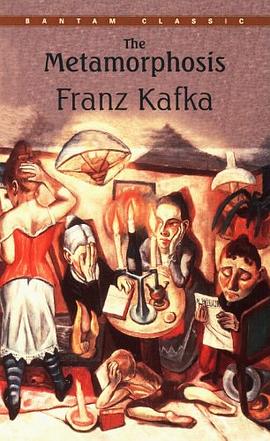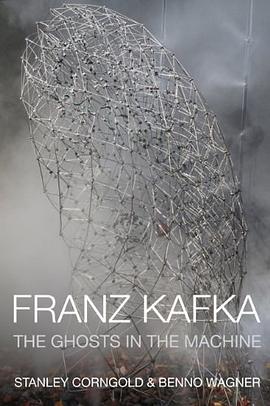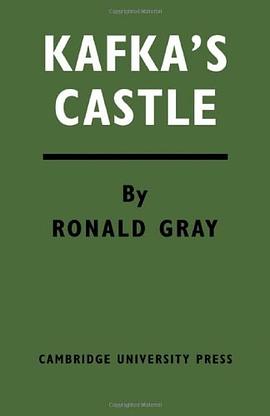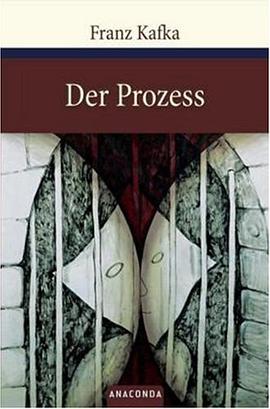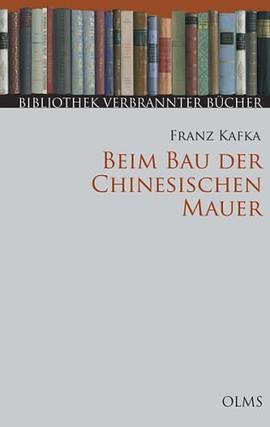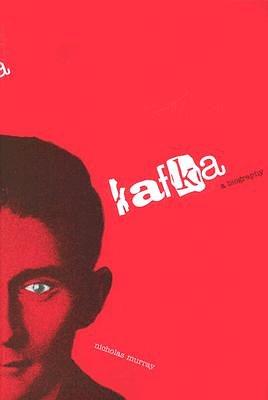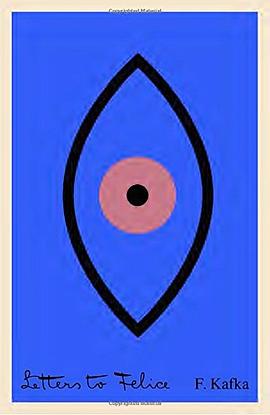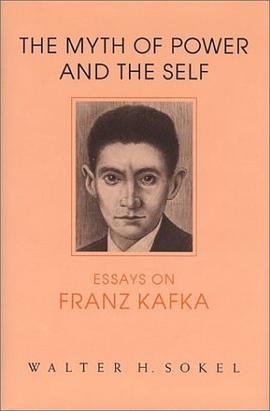
具体描述
在线阅读本书
Book Description
Arriving in a village to take up the position of land surveyor for the mysterious lord of a castle, the character known as K. finds himself in a bitter and baffling struggle to contact his new employer and go about his duties. As the villagers and the Castle officials block his efforts at every turn, K.’s consuming quest–quite possibly a self-imposed one–to penetrate the inaccessible heart of the Castle and take its measure is repeatedly frustrated. Kafka once suggested that the would-be surveyor in The Castle is driven by a wish “to get clear about ultimate things,” an unrealizable desire that provided the driving force behind all of Kafka’s dazzlingly uncanny fictions.
Translated by Willa and Edwin Muir
Amazon.com
They are perhaps the most famous literary instructions never followed: "Dearest Max, my last request: Everything I leave behind me ... in the way of diaries, manuscripts, letters (my own and others'), sketches, and so on, [is] to be burned unread...." Thankfully, Max Brod did not honor his friend Franz Kafka's final wishes. Instead, he did everything within his power to ensure that Kafka's work would find publication--including making some sweeping changes in the original texts. Until recently, the world has known only Brod's version of Kafka, with its altered punctuation, word order, and chapter divisions. Restoring much of what had previously been expunged, as well as the fluid, oral quality of Kafka's original German, Mark Harman's new translation of The Castle is a major literary event.
One of three unfinished novels left after Kafka's death, The Castle is in many ways the writer's most enduring and influential work. In Harman's muscular translation, Kafka's text seems more modern than ever, the words tumbling over one another, the sentences separated only by commas. Harman's version also ends the same way as Kafka's original manuscript--that is, in mid-sentence: "She held out her trembling hand to K. and had him sit down beside her, she spoke with great difficulty, it was difficult to understand her, but what she said--." For anyone used to reading Kafka in his artificially complete form, the effect is extraordinary; it is as if Kafka himself had just stepped from the room, leaving behind him a work whose resolution is the more haunting for being forever out of reach.
From Library Journal
Upon his death in 1924, Kafka instructed his literary executor, Max Brod, to destroy all his manuscripts. Wisely refusing his friend's last wishes, Brod edited the uncompleted Castle, along with other unfinished works, ordering the fragments into a coherent whole, and had them published. Brod's interpretation of the work as a novel of personal salvation was accepted and strengthened by Willa and Edward Muir, who translated it into English in 1930. Recent scholarship, less willing to accept Brod's version, has led to a new critical edition of the novel, which was published in German in 1982 and which purports to be closer to Kafka's intentions. Harman's translation represents this edition's first appearance in English. Harman's stated goal as translator is to reproduce as closely as possible Kafka's style, which results in an English that is stranger and denser than the Muirs' elegant work. A necessary acquisition for anyone interested in Kafka.
Michael O'Pecko, Towson State Univ., Md.
About Author
The son of a well-to-do merchant, Franz Kafka was born in Prague in 1883 and died of tuberculosis in a sanitorium near Vienna in 1924. After earning a law degree in 1906, he worked most of his adult life at the Workers Accident Insurance Company for the Kingdom of Bohemia in Prague. Only a small portion of his writings were published during his lifetime; most of them, including the three unfinished novels, Amerika, The Trial, and The Castle, were published posthumously.
Mark Harman holds a Ph.D. from Yale University and has taught German and Irish literature at Oberlin and Dartmouth. In addition to writing scholarly essays on Kafka and other modern authors, he has edited and co-translated Robert Walser Rediscovered: Stories, Fairy-Tale Plays, and Critical Responses and has translated Soul of the Age: Selected Letters of Hermann Hesse, 1891-1962. He teaches literature at the University of Pennsylvania.
Book Dimension :
length: (cm)20.3 width:(cm)12.7
作者简介
卡夫卡(1883-1924),奥地利小说家,生前鲜为人知,其作品也未受到重视,身后却文名鹊起,蜚声世界文坛。他被称为“作家中之作家”。《城堡》是其最具特色、最重要的长篇小说。
目录信息
读后感
刘小枫在《沉重的肉身》对《城堡》有以下评论:寻求意义的人生必然导致归罪的人生,因为,所要寻求的意义不是一个人的身体能够拥有的东西,难免成为捆束人身的道德绳索。道德归罪就是用道德绳索捆束人身,其正当性依据就是寻求意义的人生。道德归罪有两种,他人归罪和自我归罪...
评分最近重读,当然还是没能读到最后,人物间没完没了的对话,已经不能称之为对话了,相互攻击比较贴切。记得早年看过一个关于《城堡》的评论,不记得是出自米兰昆德拉还是格非了,他说这个长篇不可能完成,如果一开始还有情节推进,那么到最后只有无尽的对谈,主人公几乎没有行动...
评分几年前,我做了个梦。梦到自己被困在一个洞穴里,等奋力挣脱了束缚在身上的绳索后,却又在逃亡路上遇到一个凶残的恶魔,荒张之余便不择路的跑到了一栋灰色的楼前要求避难。和原来洞穴里的人张牙舞爪粗陋低俗相比,这楼里走出来的人个个衣着光鲜,不仅人人气宇轩昂,而且行为恭...
评分枣树 在我的后园,可以看到墙外有两个人,一个是K,另一个也是K。 平乐 这小镇有他们所觊觎的一切。 竹檐。 微雨。 木墙。 青石。 一群小孩子经过身边,他们的眼睛和手是那么小,他们的心也是那么小。 小到盛不了任何忧伤。 这小镇有他们所觊觎的一切。 默默无闻,...
用户评价
“The Castle”中蕴含的哲学思考,是它最让我着迷的部分之一。它并非直接给你灌输某种道理,而是通过人物的经历、他们的困境,以及他们所做出的选择,来引发读者对于生命、自由、责任、以及人性本质的思考。我常常会在阅读某个章节时,被书中人物的某种境遇所触动,然后开始反思自己的人生,思考自己面对类似情况会做出怎样的选择。这种书与人的互动,让“The Castle”不仅仅是一部小说,更像是一个引发思想碰撞的载体。它让我看到了那些隐藏在日常之下的深刻问题,也让我对人类的处境有了更深的理解。我喜欢这种能够挑战我的思维,拓展我的视野的作品,而“The Castle”无疑做到了这一点。
评分“The Castle”所构建的世界观,给我留下了极其深刻的印象。它并非那种轻松愉快的童话故事,而是充满了历史的厚重感和现实的残酷性。无论是宏伟的建筑,还是幽深的庭院,亦或是那些世代相传的家族故事,都透着一股挥之不去的宿命感。作者在描绘这个世界时,并没有回避其中的阴暗面,反而将其坦然地展现在读者面前,让我们看到权力斗争的残酷,人性的扭曲,以及历史的车轮碾过生命时的无情。然而,正是在这样的背景下,书中人物的坚持、抗争,以及那些微小却闪耀着人性的光辉的瞬间,才显得尤为珍贵。我喜欢这种复杂而多层次的世界,它没有简单的善恶二元论,而是充满了灰色的地带,让读者在思考中不断地审视自己。
评分“The Castle”在人物塑造方面,展现出了一种非常立体和深刻的功力。它没有刻意去塑造绝对的英雄或反派,而是将笔墨放在了人物内心的矛盾、挣扎以及在特定环境下的选择上。我发现,书中那些看似微不足道的人物,他们的言谈举止,他们的一个小小的举动,都可能在后续的情节中起到至关重要的作用。作者对于人性的洞察力,可以说是一种锋利的解剖刀,将人物的灵魂一层一层地剥开,让我们看到那些光明与黑暗并存,美好与丑陋交织的真实面貌。我特别喜欢书中对于一些配角命运的刻画,即使他们的戏份不多,但作者却能赋予他们鲜活的生命力,让他们在故事中留下难以磨灭的印记。这让整个故事的世界观显得更加宏大和真实,仿佛我不仅仅是在阅读一本小说,而是在观察一群真实的人,在经历他们跌宕起伏的人生。我常常会停下来,回味某个角色的某句台词,或是某个场景的某个细节,因为我知道,这些都不仅仅是为了推进剧情,更是作者对于人性的深刻理解和表达。
评分“The Castle”的叙事结构,让我感到非常惊喜。它并不是线性地讲述一个故事,而是采用了某种非传统的编排方式,将过去、现在,甚至是一些闪回的片段巧妙地穿插在一起。这种结构上的独特性,一开始可能会让一些读者感到些许困惑,但一旦你沉浸其中,就会发现它为整个故事增添了独特的魅力。它迫使我去主动地去连接那些看似零散的线索,去理解人物动机的由来,以及事件发展的内在逻辑。这种参与式的阅读体验,让我觉得更加投入,仿佛我不仅仅是被动地接受信息,而是在积极地参与到故事的构建过程中。每一次翻页,都可能带来新的发现,或是对之前情节的新理解,这种持续的“解谜”感,让阅读过程充满了乐趣和期待。
评分这本书的封面设计就足够吸引我了,厚重而古朴的质感,仿佛真的握着一本尘封多年的手稿。书名“The Castle”也带着一种神秘和宏伟的气息,让人不禁联想到那些隐藏着秘密的古老建筑,以及盘踞其中的权力与欲望。在拿到这本书之前,我对它的内容并没有太多预设,只是单纯地被它的名字和视觉呈现所打动。拿到它的时候,我迫不及待地翻开了扉页,那油墨的香气,纸张的触感,都让我感到一种久违的阅读的仪式感。我喜欢这种能够引发我无限想象的开端,它不像某些图书那样上来就试图给你灌输信息,而是邀请你去探索,去构建属于自己的那个“The Castle”。我常常会在阅读前,花上一些时间去感受书的材质,甚至是书页边沿的印刷痕迹,这些细微之处都可能透露出作者或出版方想要传达的某种心绪,而“The Castle”显然在这一点上做得非常出色,它给我的第一印象是充满了故事性,不仅仅是文字本身,更是它所承载的物理存在,都仿佛在诉说着一段漫长的历史。
评分总的来说,“The Castle”带给我的阅读体验是极其丰富和多维度的。它不仅仅是一个引人入胜的故事,更是作者对于人性、历史,以及我们生存的世界的深刻洞察。我发现自己在阅读过程中,常常会因为某段文字而停顿,去思考它所传达的深层含义,或是去体会作者在字里行间所流露出的情感。它能够让我沉浸其中,忘记周遭的一切,仿佛自己也成为了故事的一部分。这种能够触及灵魂、引发共鸣的作品,是难能可贵的。在合上书的那一刻,我并没有觉得旅程就此结束,相反,我会觉得“The Castle”的许多方面都将继续在我心中回荡,成为我人生体验的一部分,这也是我为什么如此喜爱这本书的原因。
评分“The Castle”的节奏控制,可以说是一种艺术。它不像那些快节奏的商业小说那样,时刻试图用戏剧性的冲突来抓住读者的注意力。相反,它有着一种从容不迫的步调,在某些时刻会放缓叙事,深入描绘某个场景的细节,或是某个角色的内心世界。但正是这种看似“慢”的处理,却能够让每一个场景都显得格外饱满和有力。当它需要加速时,又能够迅速地将情节推向高潮,让读者在猝不及防中感受到震撼。我非常欣赏这种对节奏的精准把握,它让整个故事的情感曲线起伏有致,张弛有度,既有引人入胜的悬念,也有发人深省的沉思,最终达到一种令人回味无穷的艺术效果。
评分我对于“The Castle”的阅读体验,始于一种潜移默化的氛围营造。作者的文字并非那种直抒胸臆、开门见山的风格,而是如同蜿蜒的小径,一步步将我引入一个错综复杂的世界。它没有一开始就抛出惊人的情节,也没有刻意设置悬念来吸引读者。相反,它更多地是通过细腻的笔触,描绘出一些看似寻常的场景,但细品之下,却能感受到其中暗流涌动的情感和隐藏的意图。例如,书中对某个房间的描写,可能不仅仅是简单的家具陈设,而是通过光影的变化、空气的温度,甚至是被遗忘在角落里的物件,来暗示着居住者的心境,以及这个空间所经历过的故事。我享受这种“犹抱琵琶半遮面”的叙事方式,它鼓励我去思考,去揣摩,去将那些碎片化的信息拼凑成一个完整的图景。每一次阅读,都像是在剥洋葱,一层一层地揭开表象,最终触碰到那些更为核心、更为动人的部分。这种阅读过程本身,就充满了一种探索的乐趣,让我沉浸其中,忘记了时间的流逝。
评分“The Castle”的语言风格,对我来说是一种极大的享受。它不像某些现代作品那样追求简洁、明快,而是带着一种古典的韵味,每一句话都经过了精心的雕琢。词语的选择,句式的安排,甚至是标点的运用,都恰到好处,营造出一种独特的节奏感和画面感。我尤其欣赏作者在描绘环境和氛围时所使用的那些充满想象力的比喻和意象。他能够将抽象的情感具象化,将平淡的场景描绘得生动而富有感染力。读他的文字,就像是在品一杯陈年的美酒,需要慢慢地去感受其中的层次和回甘。我曾不止一次地因为某一句写得特别精彩的句子而停下来,反复诵读,体会它带来的意境。这种文字上的美感,是“The Castle”吸引我的重要原因之一,它让阅读本身成为一种艺术的体验,而不仅仅是获取信息的途径。
评分“The Castle”的结尾,让我感到一种意犹未尽的满足感,但又带着一丝淡淡的怅然。它并没有给出所有问题的明确答案,也并没有让所有人物的命运都得到完美的结局。相反,它将一些开放性的问题留给了读者,让我们可以继续在自己的想象中去填补那些空白。这种不落俗套的处理方式,反而让这部作品更加深刻和耐人寻味。它没有刻意追求一个圆满的大团圆,而是更接近于现实的复杂性,在某种意义上,也让我对生活本身有了更深的体会。我喜欢这种能够激发我持续思考的作品,而“The Castle”的结尾,无疑达到了这样的效果,它不是终结,而是一个新的开始,让我对书中的世界和人物有了更长久的牵挂。
评分this vervison.
评分this vervison.
评分this vervison.
评分this vervison.
评分this vervison.
相关图书
本站所有内容均为互联网搜索引擎提供的公开搜索信息,本站不存储任何数据与内容,任何内容与数据均与本站无关,如有需要请联系相关搜索引擎包括但不限于百度,google,bing,sogou 等
© 2026 qciss.net All Rights Reserved. 小哈图书下载中心 版权所有



